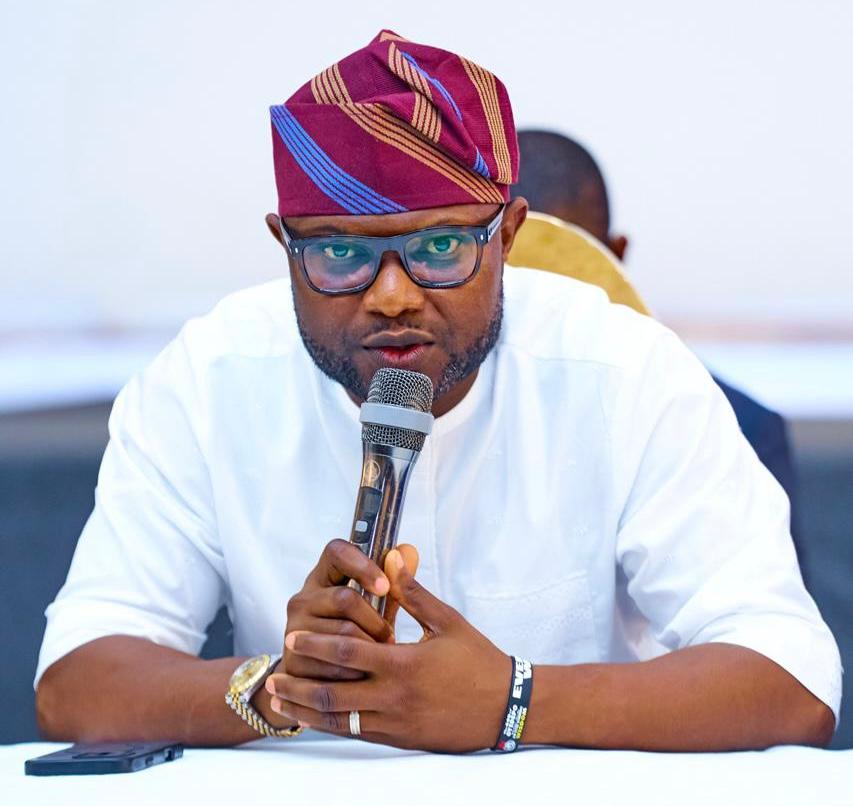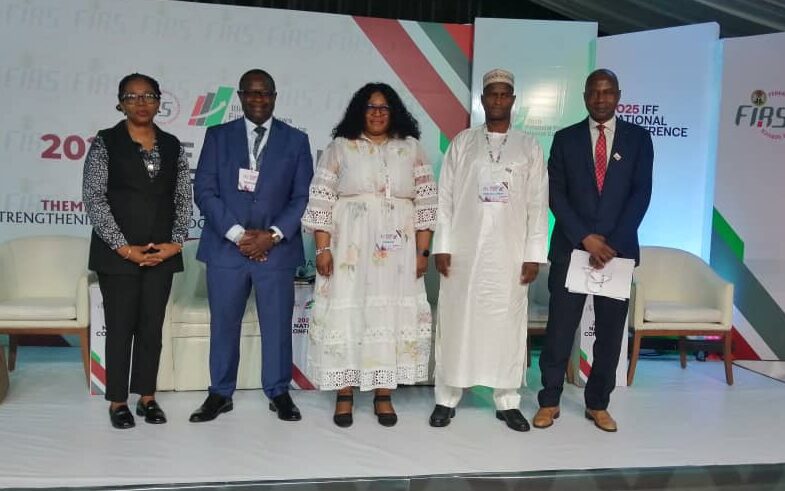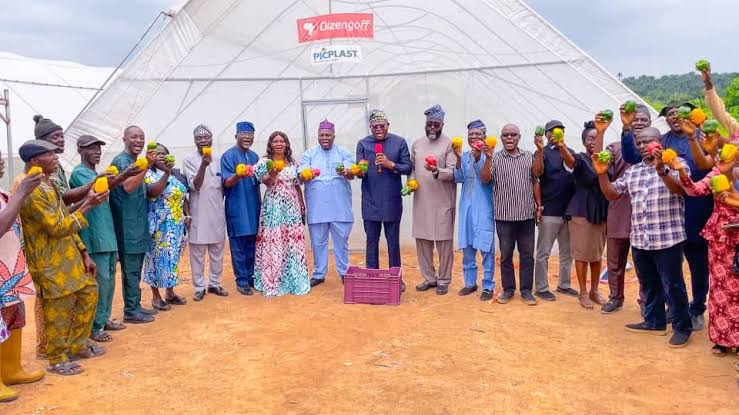By: Goodluck E. Adubazi, Abuja.
On the second day of the National Conference on Illicit Financial Flows, held from July 22 to 23, 2025, at the Transcorp Hilton in Abuja and themed “Combating Illicit Financial Flows: Strengthening Nigeria’s Domestic Resource Mobilization,” the session began with a high-level panel featuring the Special Adviser to the Executive Chairman, FIRS, Femi Edgal; Dr. Mrs. Biola Shoyunde of NFIU; a representative of the CAC; and officials from the Federal Ministry of Justice.
The Federal Ministry of Justice emphasized Nigeria’s strategic role in combating illicit financial flows through international cooperation.
A representative from the Ministry, speaking during the session, outlined the constitutional mandate of the Attorney General of the Federation and Minister of Justice as Nigeria’s central authority for legal cooperation across borders.
“The Federal Ministry of Justice becomes involved when funds cross borders,” the official explained. “This cross-border movement of illicit funds is increasingly common, largely due to the speed and ease of modern digital transactions.”
The Ministry’s primary role, they said, centers on international judicial cooperation, where it receives and transmits requests for Mutual Legal Assistance (MLA) and other formal channels of legal collaboration. However, informal cooperation remains a crucial first step.
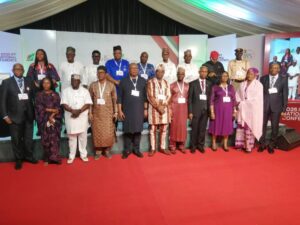
“Trust is key,” the official said. “Informal cooperation often begins with a phone call or casual interaction. From there, it can evolve into formal agreements or Memoranda of Understanding (MoUs).”
Nigeria has entered into numerous bilateral and multilateral treaties to facilitate mutual legal assistance. However, the Justice Ministry clarified that such assistance is not strictly limited to countries with which Nigeria has treaties.
“We can engage in informal cooperation even in the absence of a treaty, especially for non-coercive actions like information sharing. Formal cooperation comes into play when evidence is required for prosecution in court.”
The Ministry collaborates with several domestic agencies, including the Economic and Financial Crimes Commission (EFCC), Independent Corrupt Practices and Other Related Offences Commission (ICPC), Department of State Services (DSS), Interpol, and others. These bodies provide vital information that helps in crafting detailed and admissible legal requests.
All formal requests must be routed through diplomatic channels via the Ministry of Foreign Affairs. “This process ensures the requests are recognized as state actions, thereby giving them legal weight in the requested country.”
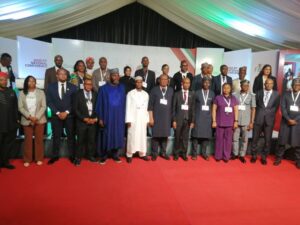
To improve the effectiveness of these efforts, the Ministry has prioritized inter-agency collaboration. “Fighting crime isn’t the time for turf wars,” the official noted. “Everyone must come together to achieve results.”
In situations requiring legal action against individuals who have already been identified and tracked, extradition becomes the next step. “Extradition is treaty-based, especially when Nigeria seeks to bring someone back into the country to face justice,” the Ministry added.
The conference brought together stakeholders from across sectors to address the growing challenge of illicit financial flows, with the Justice Ministry reaffirming its commitment to international collaboration in pursuing and prosecuting offenders.
Nigeria Ramps Up Reforms to Exit FATF Grey List, Tackle Illicit Financial Flows
According to the NFIU, Nigeria is stepping up efforts to combat illicit financial flows (IFFs) and position itself for removal from the Financial Action Task Force (FATF) grey list, with top officials calling for enhanced transparency, inter-agency cooperation, and legal reforms.
Speaking on the second day of the conference, Dr. Mrs. Biola Shoyunde of the Nigerian Financial Intelligence Unit (NFIU) highlighted the critical role of data coordination and access to financial intelligence in combating money laundering and other financial crimes.
“Transparency is still a major issue,” Dr. Shoyunde stated. “Many agencies are reluctant to share data. When data is requested, it’s treated like classified information. For us to address illicit financial flows effectively, our data systems must be integrated and capable of communicating with one another.”
She warned that professionals—including accountants, lawyers, and consultants—often enable illicit activities by helping corporations establish opaque structures such as Special Purpose Vehicles (SPVs) to conceal transactions. “We, too, must acknowledge our role in enabling complex financial secrecy. Many large transactions are poorly documented, and experts help disguise the real operations of these firms,” she added.
Nigeria has been on the FATF grey list since 2019 following a mutual evaluation that raised concerns about weak transparency, limited enforcement, and poor utilization of financial intelligence. Since then, the country has submitted six follow-up reports, prompting FATF to schedule an onsite visit in August 2025 for verification.
Dr. Shoyunde revealed that the FATF’s concerns included lack of transparency in beneficial ownership, ineffective supervision of non-financial institutions, and failure to track how intelligence is used. “When we send intelligence, we expect feedback on its impact—whether it led to arrests, convictions, or asset recovery,” she noted.
To enhance compliance and efficiency, the NFIU has created Strategic Intelligence Products to help trace suspicious transactions and support the work of enforcement agencies such as the EFCC, Nigerian Police, and ICPC.
Reforms and Next Steps
Legal reforms are already underway, including the implementation of a beneficial ownership register at the Corporate Affairs Commission (CAC). “Nigeria has made notable progress in Africa in this area. Inter-agency cooperation has improved, barriers have been reduced, and dialogue has become more seamless,” Dr. Shoyunde said.
The FATF onsite assessment in August 2025 will be followed by a mock evaluation in early 2026 to test Nigeria’s readiness for full FATF compliance. “We cannot afford to slack,” she stressed. “Our economy is too significant to be compromised by leaks and inefficiencies. Everyone has a role in making this system work.”
National Single Window Initiative: A Game Changer
Also discussed at the conference was the National Single Window (NSW) initiative, designed to simplify trade procedures, reduce revenue leakages, and boost government revenues. According to stakeholders, full implementation of the NSW could reduce port clearance times from an average of 10–18 days to just one day.
Femi Edgal, Special Adviser to the Executive Chairman of the Federal Inland Revenue Service (FIRS), said the NSW would help eliminate trade-related financial crimes such as transfer pricing manipulation, under-invoicing, over-invoicing, and goods misclassification.
“With the NSW, collusion between traders and regulators will be significantly reduced, enabling seamless import-export procedures and promoting investor confidence,” Edgal noted.
Call to National Responsibility
The conference, co-chaired by the FIRS and attended by representatives of the Ministry of Justice, CAC, and other key institutions, focused on unifying Nigeria’s approach to tackling IFFs. In his closing remarks, Idris Mohammed Abdullahi emphasized the collective responsibility of all Nigerians.
“Every kobo matters,” he said. “We all want a system that works, and it starts with accountability at every level.”
As Nigeria prepares for its next FATF review, stakeholders remain optimistic that ongoing reforms, improved coordination, and sustained commitment will ensure the country exits the grey list and strengthens its financial integrity.





